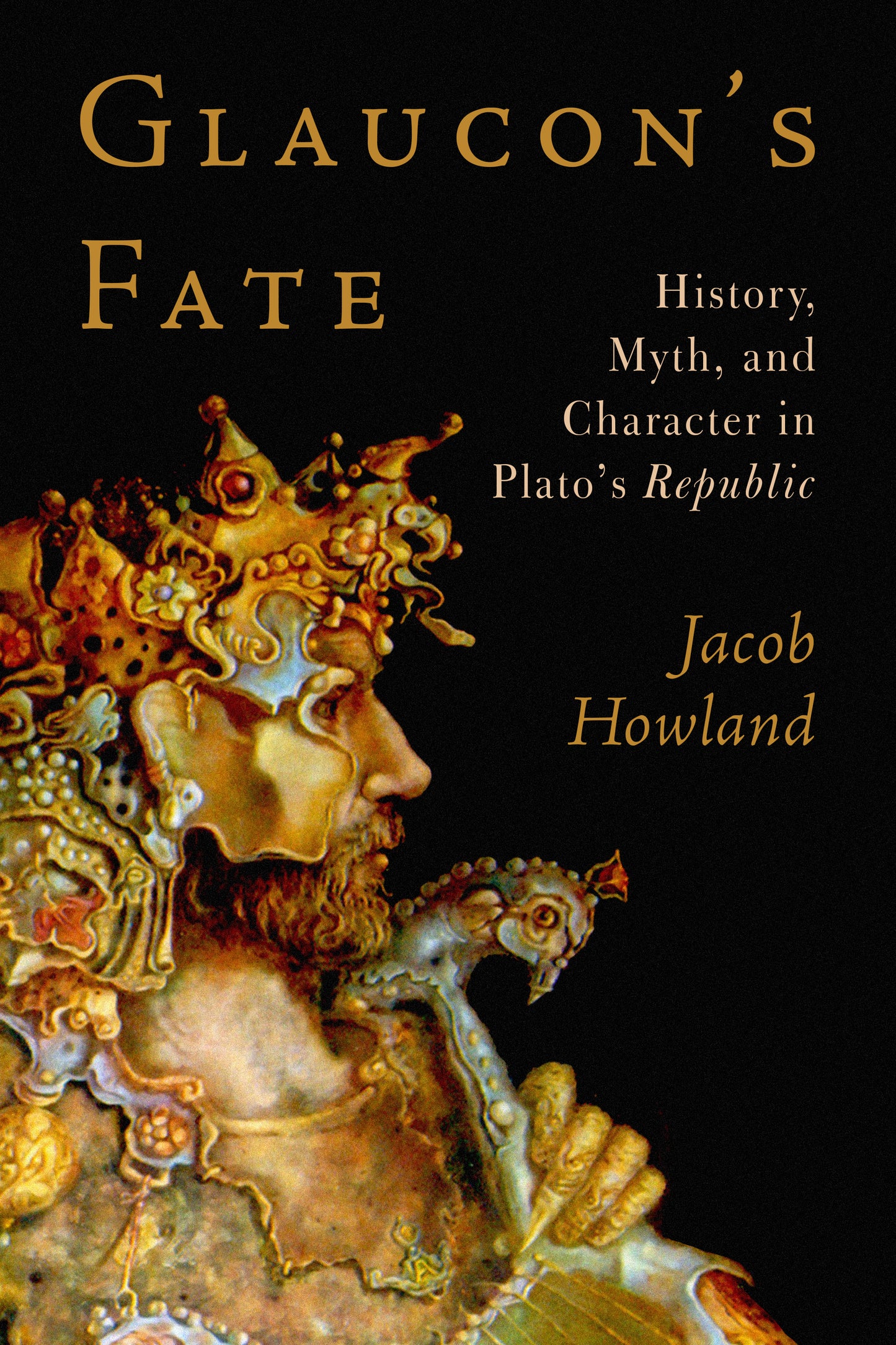Glaucon's Fate
Glaucon's Fate
Jacob Howland
Couldn't load pickup availability
Glaucon's Fate: History, Myth, and Character in Plato's Republic / 295-page paperback / 6" x 9" / ISBN 9781589881341 / Publication Date: November 2018
The Republic dramatizes Socrates’ attempt to convince Plato’s brother Glaucon that the just life of philosophy is preferable to the unjust life of tyranny. Jacob Howland argues that he failed, and that Glaucon joined his relatives Critias and Charmides in the brutal oligarchy of the Thirty Tyrants that governed Athens in the immediate aftermath of the Peloponnesian War. What went wrong? This is the guiding question of Glaucon’s Fate, a book that promises to challenge our understanding of Plato’s masterwork.
Reviews and advance praise:
“Glaucon's Fate is one of the most interesting and insightful treatments of Plato's Republic in years . . . We may never know the real Socrates, but Howland's mastery and interpretation of an impressive array of works from Plato's time, along with his insight into many Platonic dialogues, including and especially the Republic, makes this book a must-read for anyone interested in Plato, Socrates, and the life of philosophy.”—The New Criterion
“In this exquisitely written book, Jacob Howland not only offers a profound reading of the Republic, but he illuminatingly situates it in its historical context. Moreover, he treats the reader to a feast of fascinating parallels between the Republic and other works of Greek literature: its epics, tragedies, comedies, its legends, poems, and myths . . . Glaucon’s Fate is the superb product of its author’s fine, fertile, and subtle mind, his clarity, depth, and erudition, and his courage, compassion, and, finally, optimism. It is a book not to be missed.”—Polis: The Journal for Ancient Greek and Roman Political Thought
"Glaucon’s Fate is an erudite and closely argued book that will amply reward the attention of all readers interested in Platonic political philosophy. Among many other strong points, its discussion of Critias is excellent, and its interpretation of the myth of Er is thorough and thought-provoking."—The Review of Politics
"Glaucon’s Fate is thoughtful and illuminating, with many telling historical and literary references and a challenging thesis. It explores significant questions about Plato’s understanding of the connection between philosophy and politics and is well worth reading."—The Claremont Review of Books
"Readers will be most grateful for this remarkable contribution to Plato scholarship."—Review of Metaphysics
"In this fresh, audacious new book on the most famous Platonic dialogue, Howland has delivered a virtuoso performance . . . A knowledgeable, careful, and intense reader of Plato, Howland picks up on a wide range of subtleties and details. Informed by a lifetime of studying Greek thought, his command of both relatively obscure Greek sources, such as Xenophon’s Hellenica, as well as the work of renowned poets such as Homer and Aeschylus, is evident throughout. The Republic is chockfull of references to Greek myth, and hardly a single one seems to escape Howland."—Interpretation: A Journal of Political Philosophy
“Jacob Howland masterfully reads Plato’s Republic as a work of literature and history. By putting the education of Glaucon—Plato’s brother—at the center of the text, he confirms Rousseau’s famous judgment that the Republic is the greatest work on education ever written. Socrates’ failure to turn Glaucon toward the philosophic life illustrates the vulnerabilities of philosophy when confronted with the allures of power and political rule. Glaucon’s Fate is a must-read for every serious student of Plato’s philosophy.”—Steven B. Smith, Alfred Cowles Professor of Political Science, Yale University
“Glaucon’s Fate is splendid. It shows the Republic as no mere epic but a proper Greek tragedy, with the violence, as is traditional, taking place offstage. I found Howland’s book enlightening on every page.”—Lenn E. Goodman, Professor of Philosophy and Andrew W. Mellon Professor in the Humanities, Vanderbilt University
“In Glaucon’s Fate, Jacob Howland reveals exquisitely how Plato’s thought was formed by his lived experience. Through close attention to the historical personalities in the circle of Socrates, Howland shows how memory of Glaucon –Plato’s brother, who also figures in Xenophon’s Memorabilia of Socrates—provided a foil for Plato to construct his ideal philosopher-ruler. Our reading of the Republic is richly informed by this book.”—Mark Munn, Professor of Ancient Greek History and Greek Archaeology, The Pennsylvania State University
“Howland’s book reorients nearly every detail of this dialogue that we think we know so well. Glaucon’s Fate is an exhilarating read. It will change the landscape of the scholarly debate about Plato’s Republic for many years to come.” —Anne-Marie Schultz, Professor of Philosophy, Baylor University
Jacob Howland is McFarlin Professor of Philosophy at the University of Tulsa. He is the author of The Republic: The Odyssey of Philosophy (Paul Dry Books, 2004).


